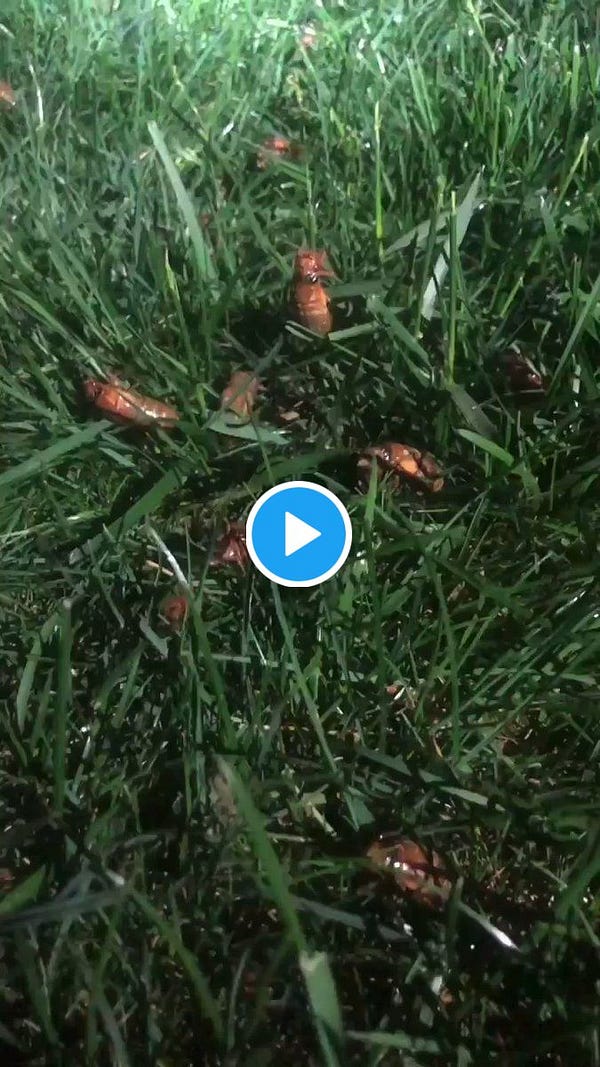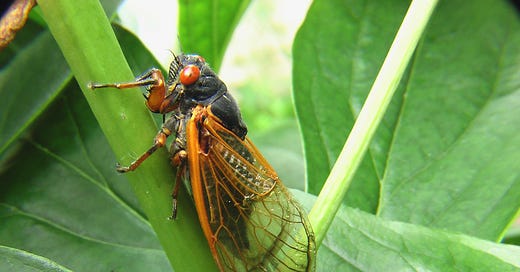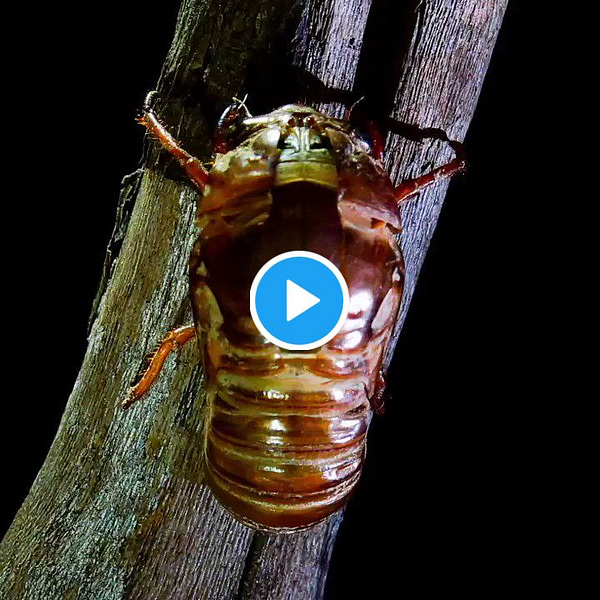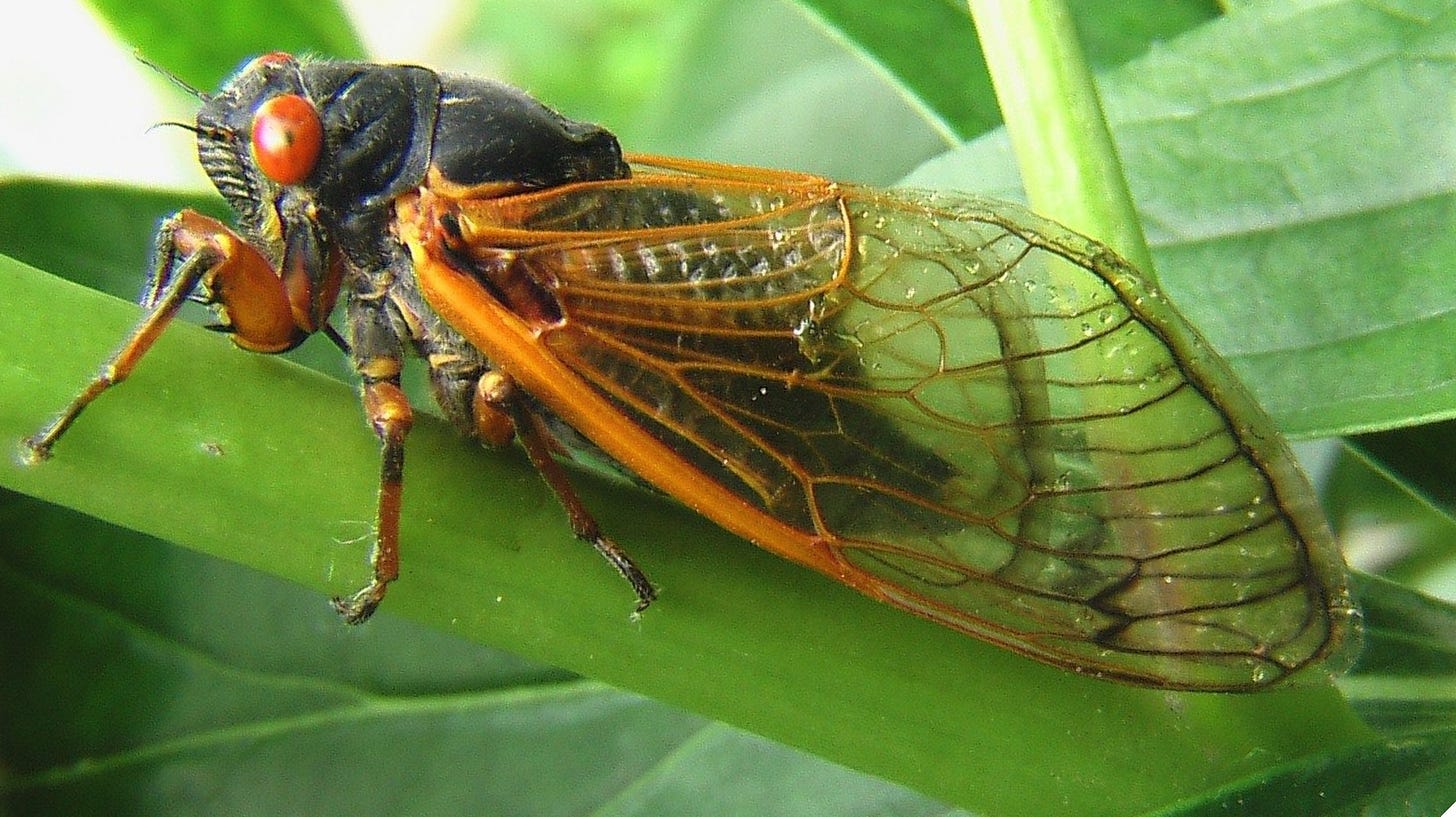Brood X periodical cicadas and the amazing history of their first description
William Bradford, the Governor of the Plymouth Colony, wrote the first description of the periodical cicadas; he was not amused by these 'flies' that 'deafen the hearers.'
I see the first pictures and videos on Twitter of Brood X periodical cicadas. The tone in the comments is still one of pleasant surprise for the first sightings of one or perhaps a couple of these unique insects. Soon their volume will rise to unimaginable numbers. It would be a fascinating social media project to follow the sentiment of the average cicada tweet in the next few weeks. I expect that some of you may find them less pleasant before this month is over, when billions of cicadas will celebrate the best month of their lives.


Remember that we are talking here about 17-year-old males that are leaving home for the first time. They do not do so quietly. These guys celebrate the change in their lives after living all their lives under the ground, in the monotonous darkness, where drinking root juices was the highlight of their dull lives.
Once they climb up and see daylight, they first get dressed for the party; they shake off their underground skins, as you can see in the video in this tweet.
And then it's time to party. The boys will sing as loud as 100 decibels, comparable to a jet flyover at just 1000 feet. The Centers for Disease Control and Prevention recommends limiting unprotected exposure to their singing to 15 minutes. The 17-year old girls, or older women considering they are close to the end of their lives, are impressed by their mating songs. The last few weeks of their lives are all aimed to make sure that you will enjoy a similar party in 2038. They celebrate life, sing, mate, then lay some 600 eggs and die.
William Bradford
These partying barflies are not the types that easily win the respect of the Puritan separatist who wrote the first account of the periodic cicadas. William Bradford, the governor of the 1620 Plymouth Colony, described the cicadas as a 'pestilent fever':
"It is to be observed that, the spring before this sickness, there was a numerous company of Flies which were like for bigness unto wasps or Bumble-Bees; they came out of little holes in the ground, and did eat up the green things, and made such a constant yelling noise as made the woods ring of them, and ready to deafen the hearers; they were not any seen or heard by the English in this country before this time; but the Indians told them that sickness would follow, and so it did, very hot, in the months of June, July, and August of that summer."
William Bradford is an interesting character. In 1608, at the age of 18, he managed to escape from England. His congregation had decided that their efforts to reform the church were hopeless. He had already tried this the year before but ended up in jail. His second attempt was successful, and he arrived in the Dutch Republic, a haven of religious freedom.
Before the Mayflower: Pilgrims in Leiden
I know the streets and alleys around Leiden's Peters Church where he and the other future Pilgrim lived very well. Some 350 years after Bradford lived there, I was born in Leiden, and I grew up near that beautiful city. I have lovely memories of listening every year on Good Friday to Bach's Mattheus Passion in that same Peters Church*.
Bradford had experienced both misfortune and fortune in his life, mainly in that order. To sum up a lot of drama in just a few lines: his father died when he was one year old, his mother remarried when he was four. She (or maybe the new man in her life) sent William to live with his grandfather, who died two years later. Luckily he still had his mother, but she died a year later when little William was seven.
He was poor when he arrived in Leiden, even though he came from a well-to-do family. But life changed for the better when he successfully claimed his family inheritance at the age of 21; he bought a house and workplace, and he married the daughter of a wealthy English family.
Plymouth Colony
Bradford and his wife sailed on the Mayflower in 1620, and a year later, the settlers of Plymouth chose Bradford as the new governor. He retained this position off and on for the rest of his life.
Some 25 years ago, I was in Plymouth Harbor and visited the 17th-century recreation of the small farming community built by the Pilgrims. Actors played the role of the original inhabitants, and I told them that I came from Leiden. They all said enthusiastically, 'so do we,' and we spoke about the Peters Church and shared 'memories.' One woman told me about her marriage in another church in Leiden, the 'Mare Kerk,' and I could describe her its specific shape. They all stayed in their roles, and I tried to tell my story without references to cars and airplanes.
The last thought before I close:
Cicadas, there will be trillions of them. There is much more to tell about them, and many newspapers and magazines will likely share that information. I did already some weeks ago when I wrote 'The cicadas last song.' But this late evening, Bradford pulled me in a different direction, so I gave you a mix of insects, Pilgrim history, and personal memories. What a freedom to write about such a combination of topics in a way that no editor would accept and no publisher would publish. Substack gives me the possibility to tell stories this way. If you would like me to focus, let me know because I often drift in different directions while I write. And let me know if you are interested to hear more about the Pilgrims' stay in Leiden. I could make a stop there this summer and share some impressions. My summer writing will likely be more about travel, nature, and history. But I listen to your feedback, although I realize that I did forget the 'no more than 400-word story' advice that one of you gave me yesterday.
Notes:
I want to thank the photographers:
Photo 1: by Shannon Potter on Unsplash
Photo 2: by Laura Gilchrist on Unsplash
*If you add Leiden's Peters Church (Pieters Kerk) to your bucket list, and ever visit, you may note my father's name, Hugo Verbeek, painted on one of the church windows










🙏
Seems NY is one of the areas that will get all those cicadas. Not looking forward to that. Can remember my cat bringing them to me as presents. Seems the Northeast has many connections to the Netherlands from the Pilgrims to New Amsterdam. Enjoyed reading the connections between cicadas and Bradford. Thanks for another interesting piece.